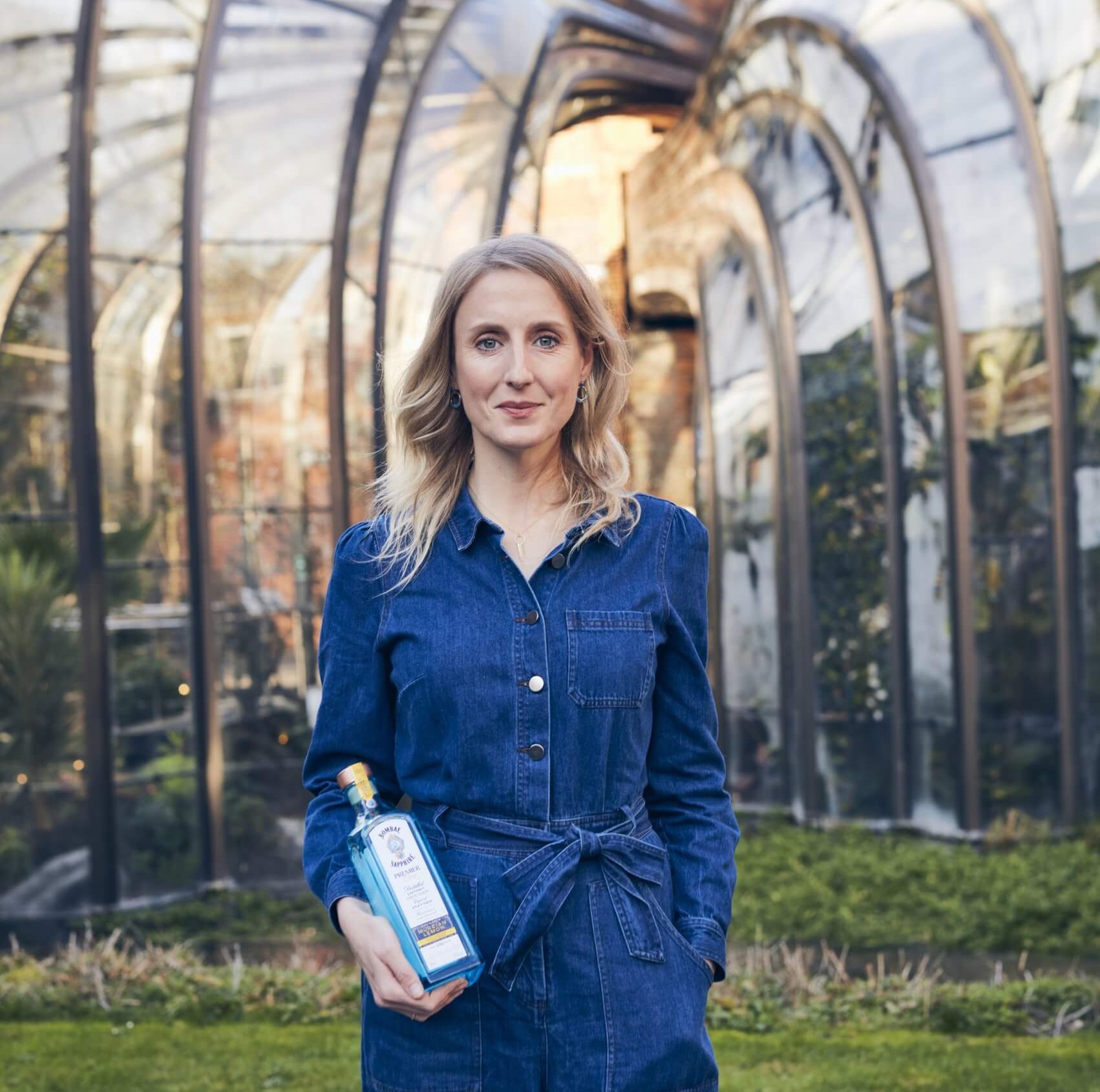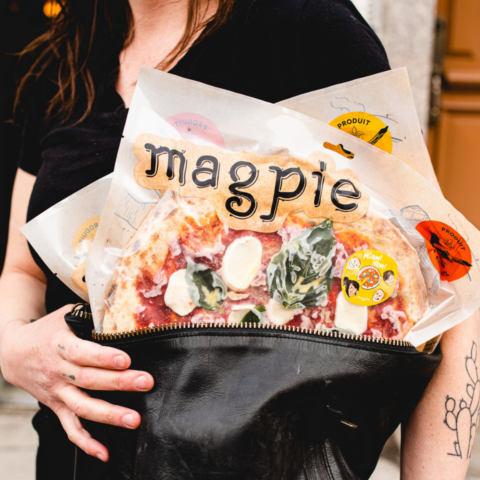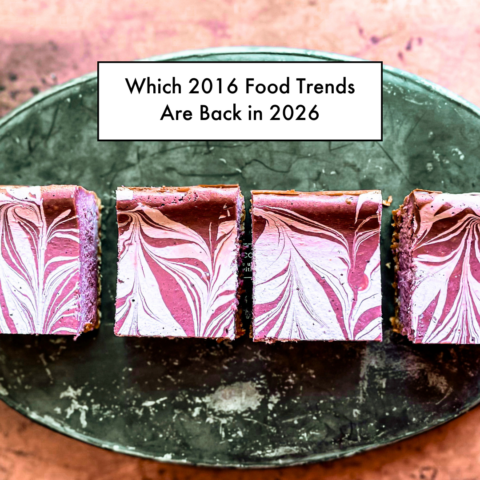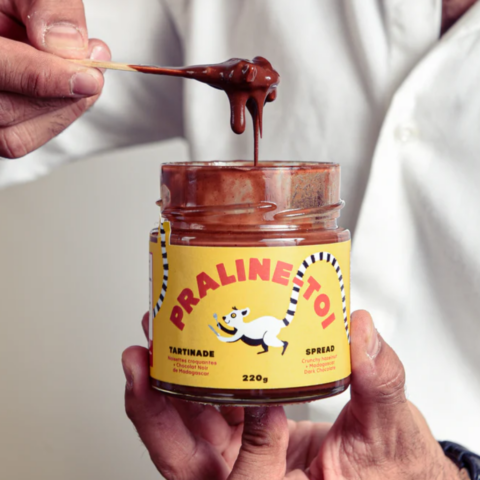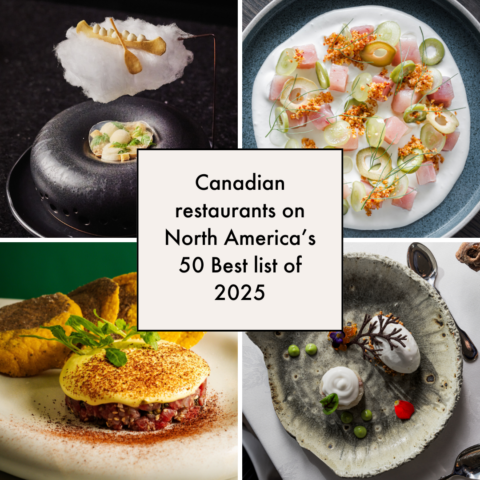Tucked away in the English countryside, between the villages of Whitchurch and Overton, stands a series of centuries-old recently-refurbished buildings on a five-acre site. A former paper mill that once printed banknotes for the Bank of England, the rambling Victorian buildings belie the modern and sophisticated happenings behind the brick walls.
This is the brand house and distillery for Bombay Sapphire Gin, and, just like the unparalleled quality of the gin that is produced there, the distillery’s commitment to sustainability – from field to bottle – goes far beyond any other global distillery’s.
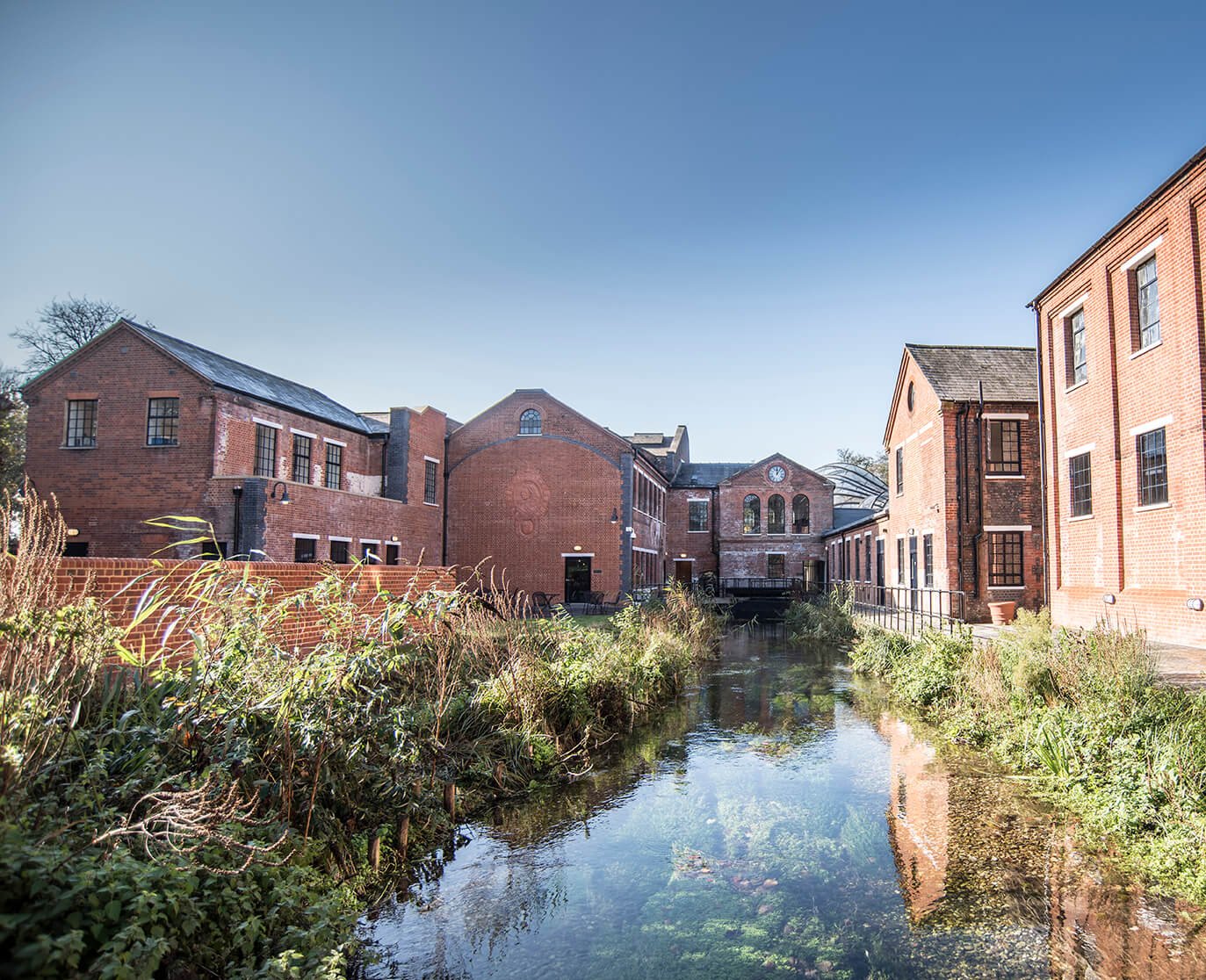
Bombay Sapphire and The Laverstoke Mill
After an extensive refurbishment, The Laverstoke Mill opened to visitors in 2014. Remarkably, the distillery now operates off of 100% renewable energy. Solar panel arrays and a hydroelectric turbine in the nearby River Test provide low-carbon power, and a high-tech boiler provides heat and hot water fuelled by locally- and sustainably-sourced wood chips.
In addition, more than 80% of the original structure was retained during the restoration of the site, and building materials from demolished buildings, including original bricks and roof tiles, have been recycled and reused. The international green building certification body BREEAM rated the distillery’s design and refurbishment design as “outstanding” – the first time a distillery AND a refurbishment were granted this prestigious distinction.
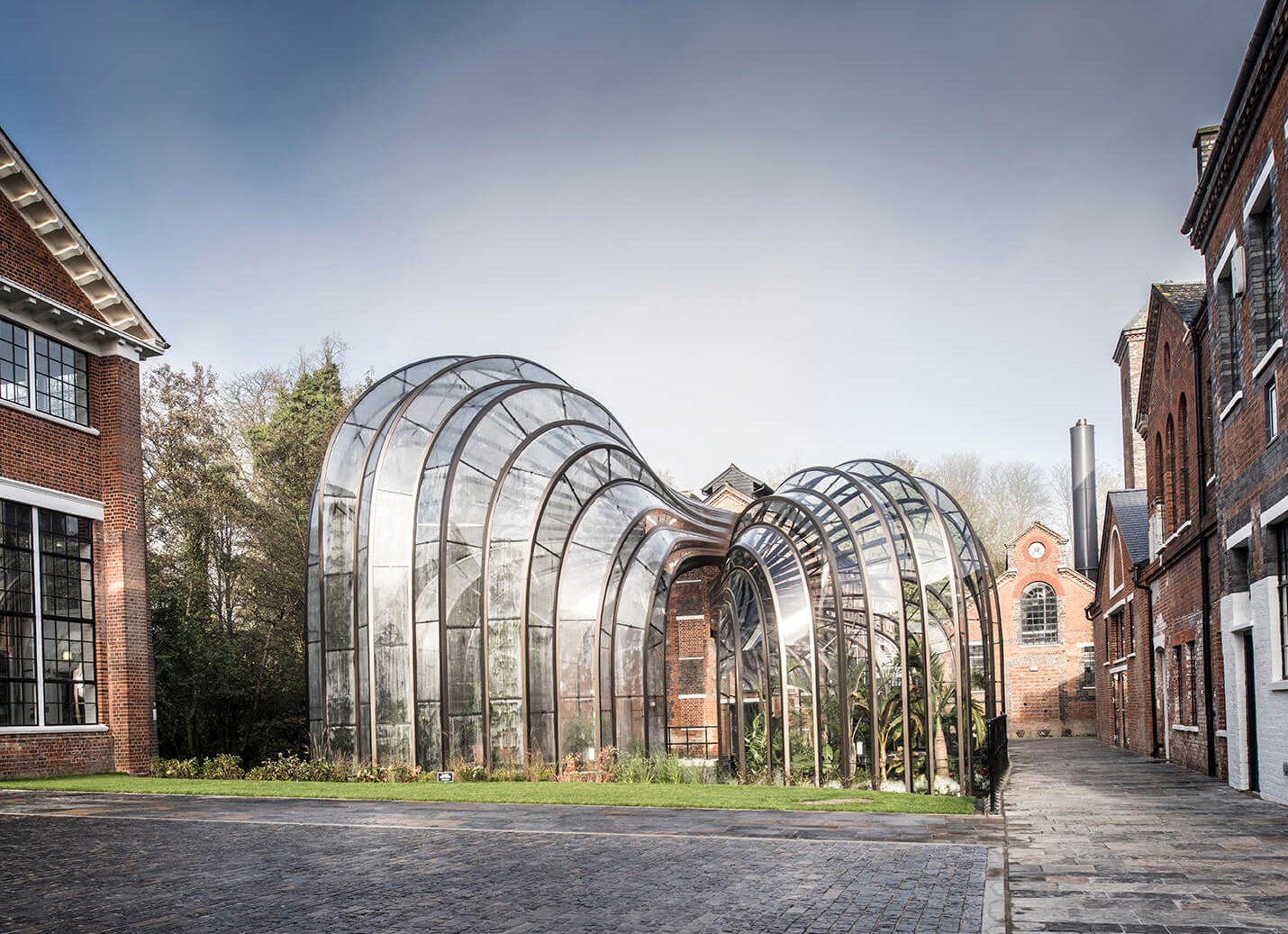
Greenhouse? Sculpture? Or both?
Wandering through the beautiful grounds of Laverstoke Mill, you’ll encounter a section of the River Test, which flows directly through the site. This protected waterway has significance, not only because it’s part of the Laverstoke and Freefolk Conservation Area, but also because it runs through the Mill’s central courtyard. It’s also where two striking glasshouses designed by Heatherwick Studios form a focal point.
The glasshouses, with their undulating bronze-finished stainless steel frames containing a complex combination of over 800 individually-cut glass pieces, are seen as contemporary interpretations of classic British botanical glasshouse structures. Each glasshouse has its own environment – tropical and Mediterranean – to house examples of the botanical ingredients used in Bombay Sapphire. Of course, it will come as no surprise that the glasshouses are warmed by the excess heat produced by the distillation process.
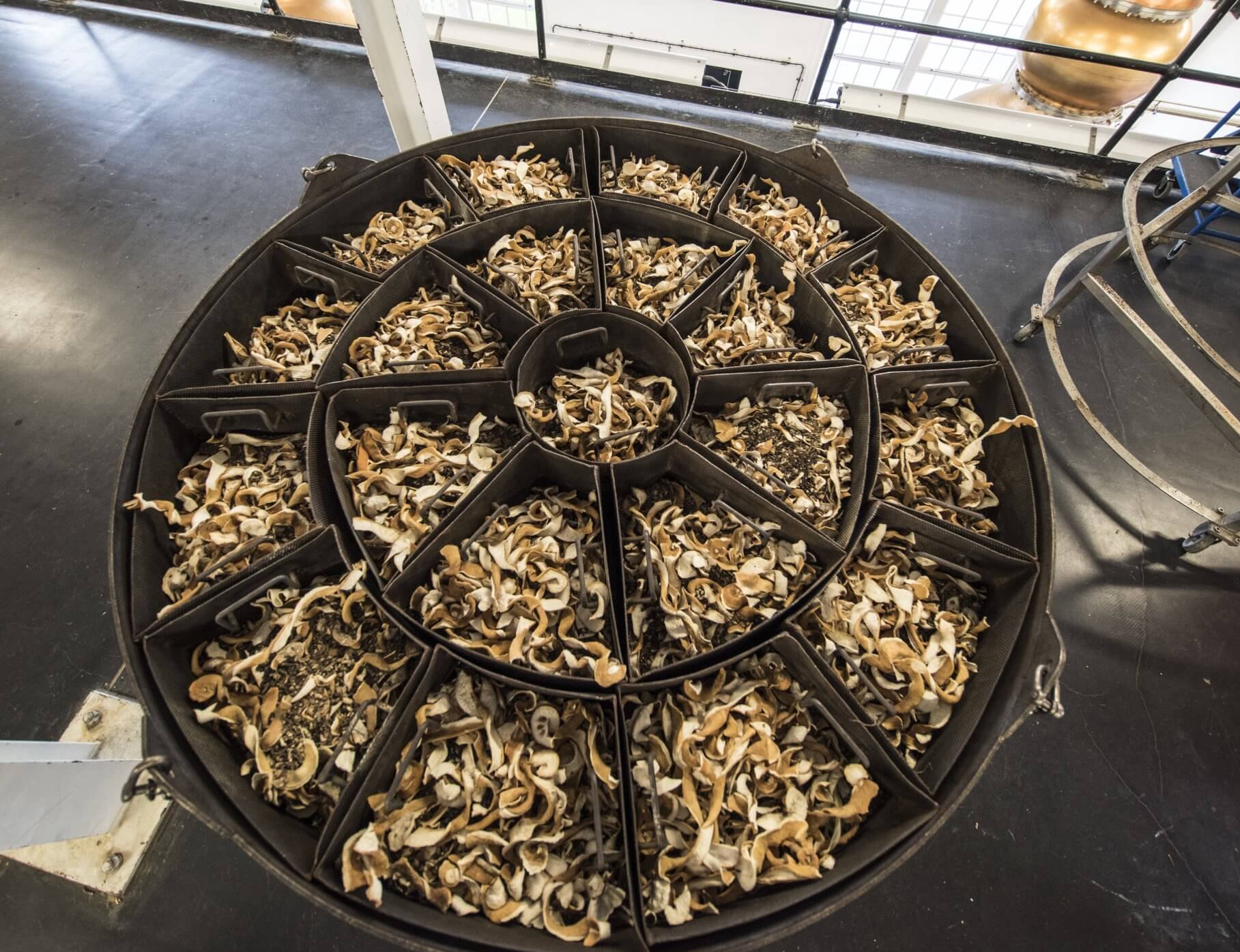
A secret recipe of 10 botanicals.
The smooth and complex flavours of Bombay Sapphire comes from the fresh, bright-tasting notes of 10 different botanicals. During the unique vapour-infusion distillation process, these botanicals are suspended above the spirit in copper baskets. As the heated spirit vapours rise, it’s infused with all the aromatic flavours released by the botanicals. The standards for distilling Bombay Sapphire gin are exacting – Dr. Anne Brock, who has been Master Distiller for over five years, heads up the team of distillers who are responsible for the quality of every precious drop.
How these botanicals are grown and harvested is an equally big part of Bombay Sapphire’s holistic approach to sustainability.
Says Master of Botanicals Ivano Tonutti: “It’s our responsibility to care as much about the farmers and their communities as we do the botanicals they grow and harvest for Bombay Sapphire.” The 10 hand-selected botanicals that make up Bombay’s unique flavour profile – including Tuscan juniper, Moroccan coriander and Spanish lemon peel – are now all sourced sustainably. ECOCERT, a leading industry certification body, has granted Bombay Sapphire the prestigious ‘For Life’ distinction, which recognizes the commitment of the brand to exclusively work with suppliers who act responsibly and take steps toward a more sustainable future.
Nothing goes to waste.
In addition, nothing is thrown out during the process of sourcing the botanicals and infusing them. The botanical waste is eventually recycled through a process called anaerobic digestion, which turns organic matter into energy that powers the distillery’s electrical grids with minimal carbon emissions and methane gas release.
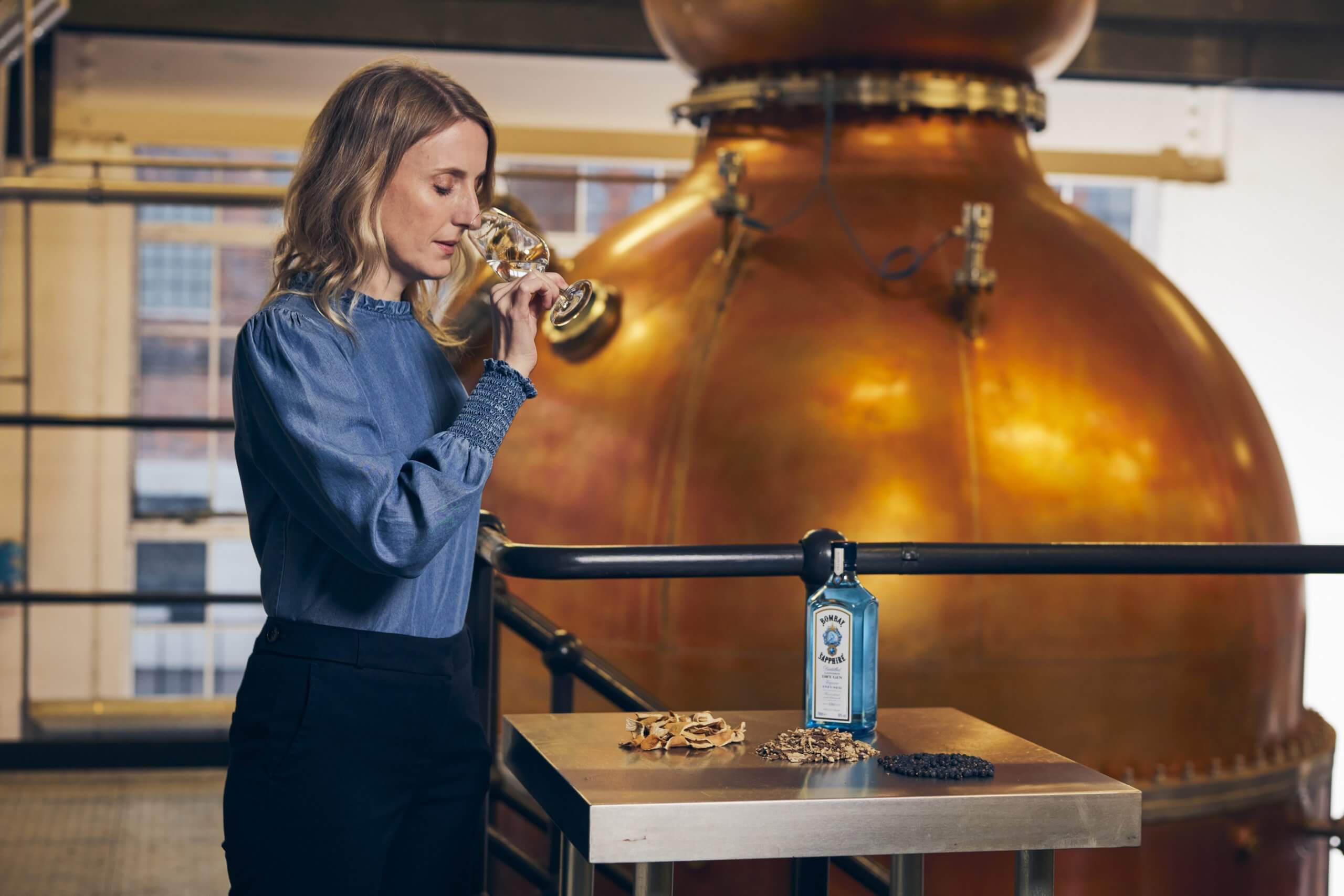
When it comes to bottling, the message of sustainability is also key: The iconic blue Bombay glass bottles are not only 100% recyclable, but they are made with one-third recycled glass. Better still, the product labels are made from paper approved by the Forestry Stewardship Council, meaning it’s sourced from forests with conservation protections in place, zero deforestation and fairly-paid labourers.
Plastic-free by 2030
As part of a Bacardi-wide initiative, Bombay (which is owned by Bacardi) is also on a mission to go completely plastic-free by 2030, and has already implemented measures such as removing all plastic packaging from gift sets and bundles.
When you make your next Bombay Sapphire gin and tonic, in addition to enjoying the exceptional and distinctive flavour of one of the world’s finest gins, you can feel good knowing that every single step of the production process – from field to bottle – was done in a sustainable way.

